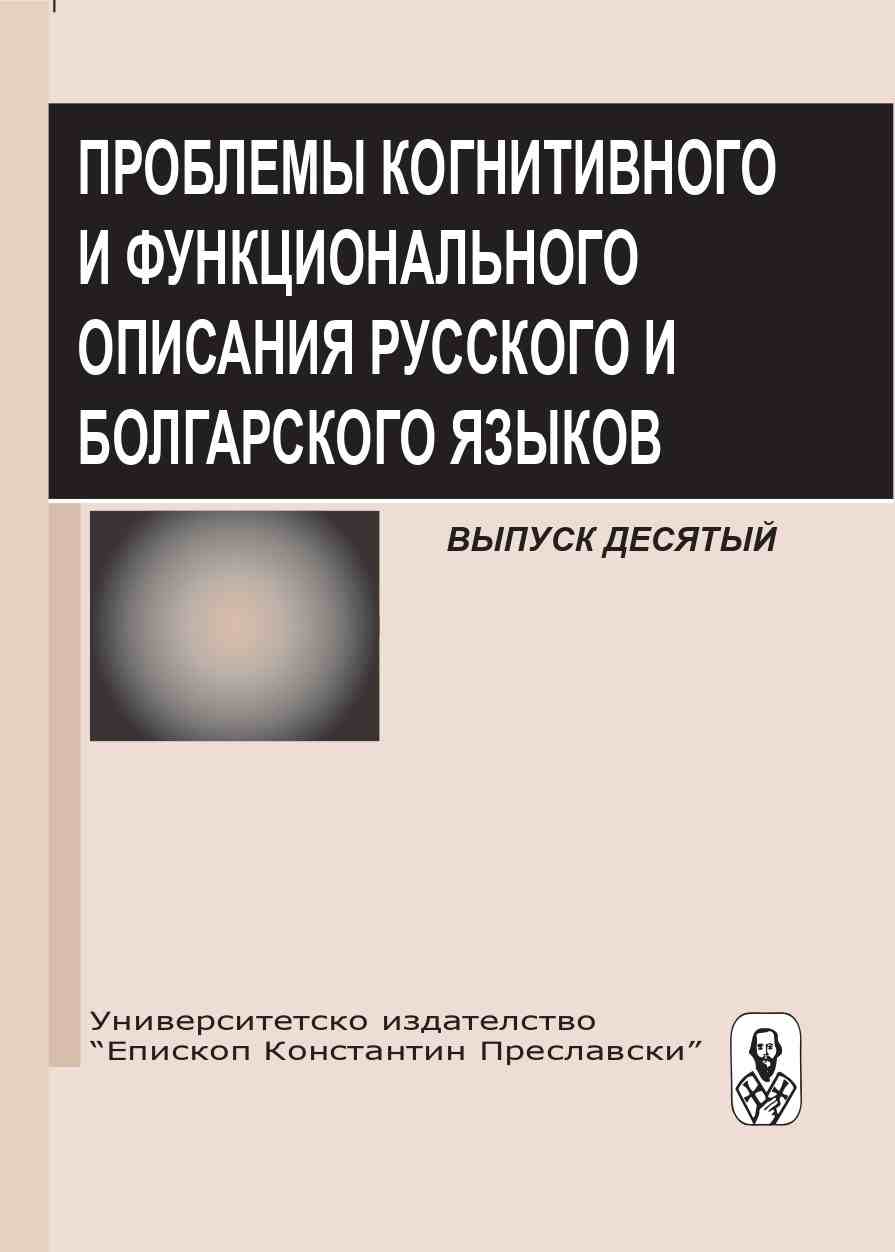Болгарский союз освен да на фоне русских функциональных соответствий
Bulgarian conjunction освен да at the background of its Russian functional counterparts
Author(s): Alla GradinarovaSubject(s): Language studies, Language and Literature Studies, Theoretical Linguistics, Morphology, Eastern Slavic Languages, South Slavic Languages, Philology
Published by: Шуменски университет »Епископ Константин Преславски«
Keywords: conjunction освен дa; exclusion semantics; restriction of negation; universal quantifier; functional counterpart
Summary/Abstract: In most contexts, Bulgarian conjunction освен да introduces a dependent clause possessing the meaning of exclusion. As a rule, it is used for limiting the negation expressed in the main clause. Propositions possessing the semantics of “no way out” are constructions specific for освен да. Apart from that there are rare uses of this conjunction in constructions with main clause of no negative meaning. Bulgarian conjunction has a number of functional counterparts in Russian language, like кроме того, что; кроме того, чтобы; как только; как; разве что; разве только; разве, etc., the use of which is conditioned by structural-semantic and stylistic peculiarities of the context.In most contexts, Bulgarian conjunction освен да introduces a dependent clause possessing the meaning of exclusion. As a rule, it is used for limiting the negation expressed in the main clause. Propositions possessing the semantics of “no way out” are constructions specific for освен да. Apart from that there are rare uses of this conjunction in constructions with main clause of no negative meaning. Bulgarian conjunction has a number of functional counterparts in Russian language, like кроме того, что; кроме того, чтобы; как только; как; разве что; разве только; разве, etc., the use of which is conditioned by structural-semantic and stylistic peculiarities of the context.
Journal: Проблемы когнитивного и функционального описания русского и болгарского языков
- Issue Year: 10/2016
- Issue No: 1
- Page Range: 5-24
- Page Count: 20
- Language: Russian

